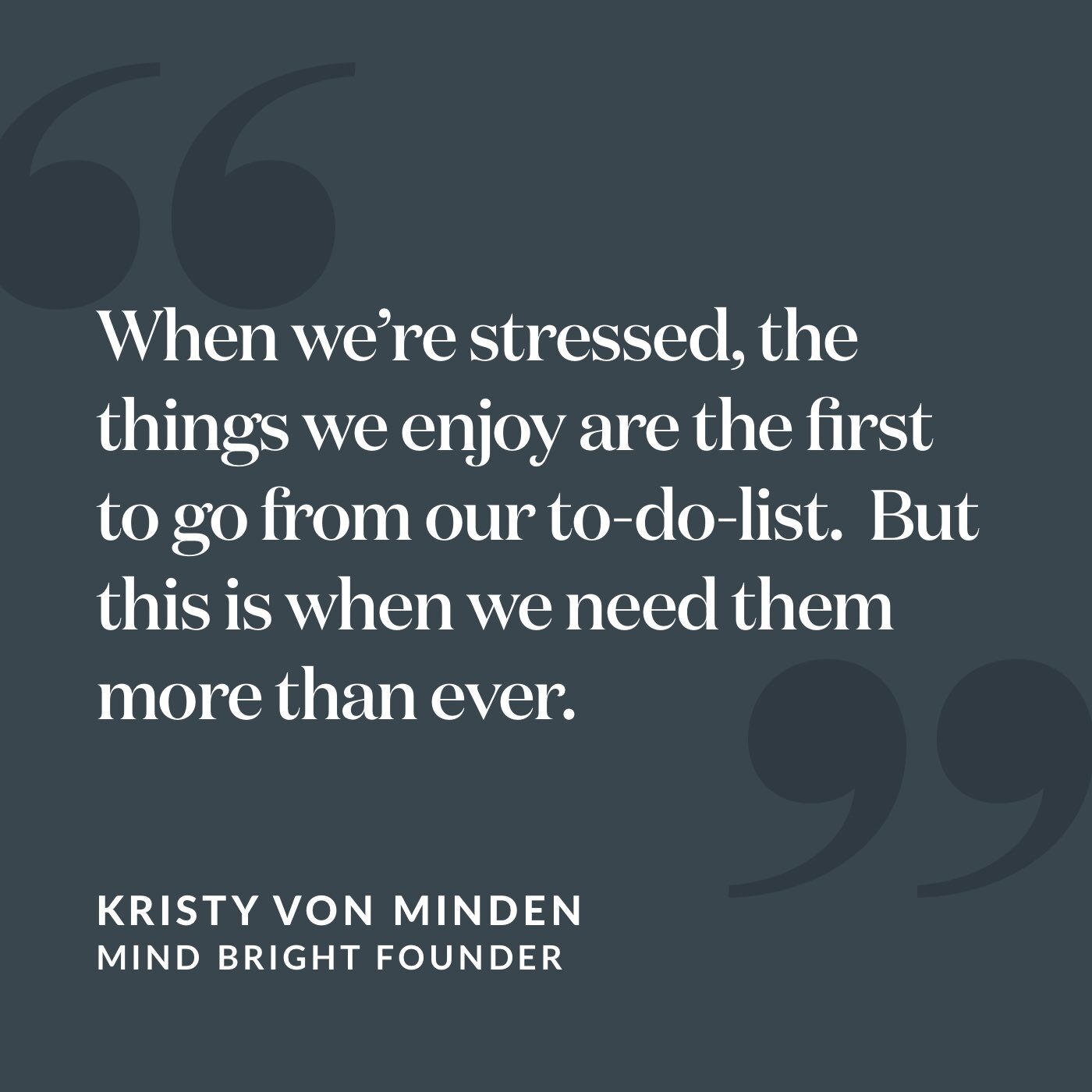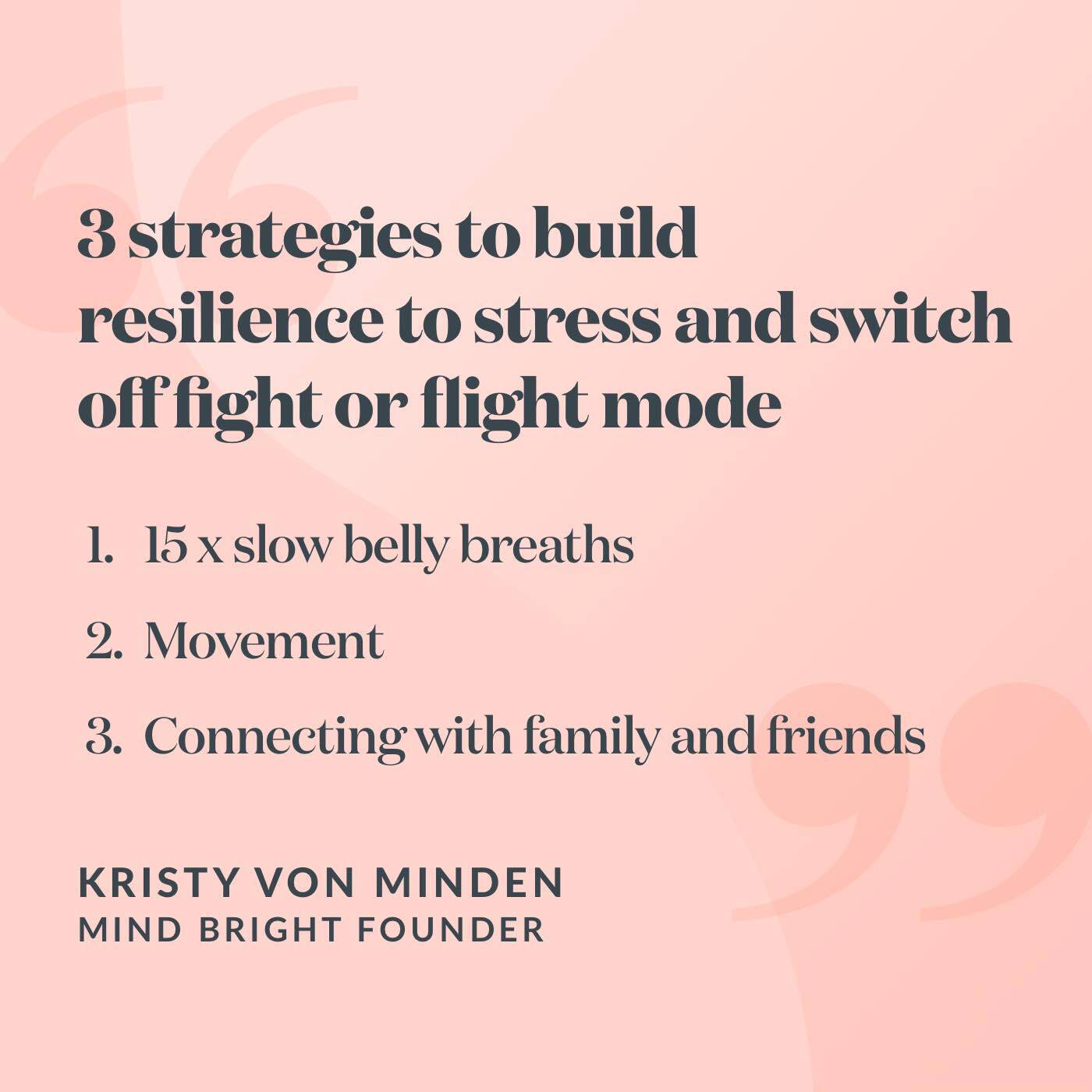From surviving to thriving: combat stress with Kristy von Minden’s simple strategies
Having experienced the pressures and stresses of the modern workplace first-hand, Kristy von Minden set up Mind Bright to enhance health, happiness, and performance in the workplace. Kristy, who runs wellness workshops and drives positive change in business organisations, talked Timely through some simple strategies for coping with the unprecedented stresses of 2020.
How has 2020 been for you?
It’s been such a crazy year, full of challenges and uncertainty. I can personally relate to many of the stresses that Timely customers are experiencing right now; concerns and fears around laying off staff, worrying about the future of the industry, dealing with upset clients, juggling kids and work. These are all things I’m very familiar with.

What effects does all this stress have on us?
When we’re stressed, the brain can’t thrive, and this takes its toll on our physical and emotional health, our relationships, and our work life. A lot of us are in survival mode at the moment, which triggers the fight or flight response.
How can we tell if we’re experiencing the fight or flight response?
Different people will notice different things, but some of the really common physical symptoms are a racing heart, sweaty palms, tension in the shoulders and neck, headaches, and tummy issues.
How common is it for people to feel stressed?
Extremely! At the moment in particular, it’s very, very common for people to be struggling to cope; myself included. I’ve had some big, uncomfortable emotions during the lockdown periods. And when I was in my corporate job I burnt out completely. I was waking up in the morning feeling anxious, without any triggers at all.

How should we deal with stress?
There are three really quick strategies that will help you cope with things and build resilience to stress. The most important one is to learn how to switch off the fight or flight response.
How do we do switch off the fight or flight response?
Unfortunately, we can’t just turn off the stress response using our brains. But we can do it with breathing. One of the best ways to switch off the fight or flight response is to take 15 slow, deep belly breaths. It seems almost too simple, yet it really is one of the quickest, most powerful ways.
Is there any benefit to practising this breathing technique during times we aren’t stressed?
Definitely. A great thing to do is practice this type of breathing when you are feeling calm as this makes it easier for you when you are stressed. It can be as little as 10 breaths when you wake up and 10 breaths when you go to bed. By doing this regularly you’ll be sending safety messages to your brain, which help balance your nervous system.
What is the second strategy for coping with stress?
It’s another tip that seems really simple; movement. The fight or flight response is designed to be followed by a short, intense burst of activity, which would burn off the stress hormones and extra energy it creates. But most of us experience the stress response when we’re sitting down, or not really moving. This keeps the stress hormones swimming around, making us feel edgy and anxious.
What type of movement helps to switch off the stress response?
The great news is that you don’t need to go for a 30 minute jog to burn off those stress hormones! A few minutes of star jumps will get your heart rate up and switch off the fight or flight response. Or you could walk around the block, really swinging your arms. It really doesn’t need to be much.
And the third strategy you recommend for coping with stress?
Connecting with family and friends. It can be something as simple as a hug or talking to someone that you care about. When we’re connecting with others, we release a lovely hormone called oxytocin which, like movement and breathing, switches off the fight or flight response.

What can we do to make ourselves more resilient to stress?
The things that make us happy! When we’re stressed, the things we enjoy are the first to go from our to-do-list. But this is when we need them more than ever. We need to be cultivating a relaxation practice and prioritising time for our brain to feel safe and relaxed every single day.
I also really recommend taking time off digital devices and making the time to actively think about the things you are grateful for. Shifting our focus, even just momentarily, helps to balance our brain and increases feelings of positivity.


